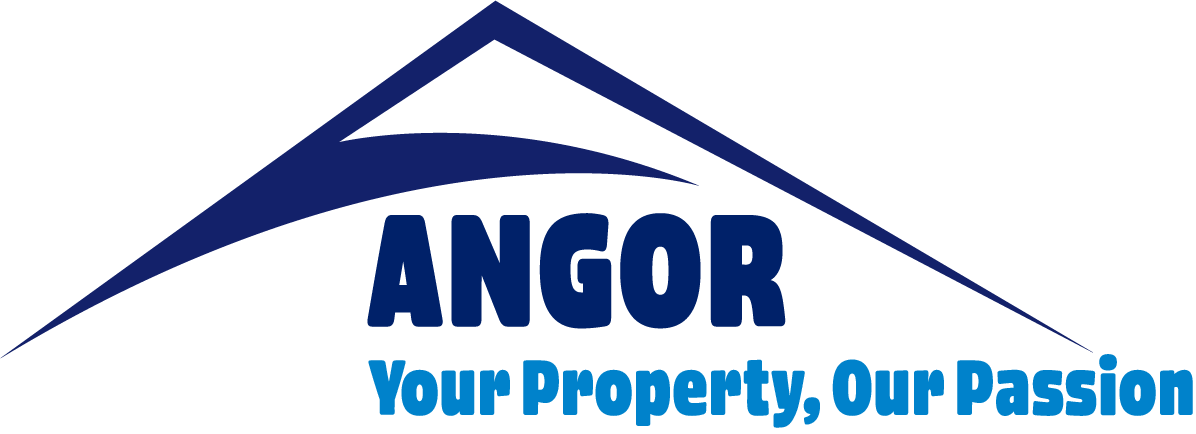Keep community scheme meetings calm, collected and productive with a Managing Agent to help!
Sectional Title Scheme meetings simply can’t be avoided. Not only do they facilitate decision-making and help to guide Trustees in the Scheme’s proper running, but they are also required by law.
And naturally, it is quite reasonable for the Owners in a shared asset, like a Sectional Title or Community Scheme, to want to have a say in the major decisions made that affect the running, costs, and value of that asset.
A series of meetings will need to be held for all of this to be worked out fully and correctly.
But how does this work in practice?
Meetings Required by Legislation
The way a Body Corporate functions can be complicated. All Owners naturally form part of a Body Corporate. Trustees are then appointed at the AGM (annual general meeting) of the Body Corporate. Elected Trustees are given certain powers and duties and the authority to act on behalf of the Body Corporate.
The Sectional Titles Schemes Management Act (STSMA) makes provision for decisions to be taken at different types of meetings and requires a record of the decisions made for that Scheme to be kept and made available. The forums required to give effect to necessary decision-making consist of the Annual General Meetings, Special General Meetings, and Trustee Meetings.
Let’s have a closer look at each one.
Trustee meetings
Trustee meetings are needed to vote on matters of importance within the Trustees’ authority. Trustees are tasked to carry out the work of the Body Corporate by voting on resolutions that enable them to deliver financial and property maintenance work.
Decisions can be made through a written process. This involves sending a notice to each Trustee that includes the proposed resolutions and instructs them to sign it before the closing date specified in the notice if they agree with it.
Rules allow for Trustees to attend Trustee meetings by telephone or online video conference calls, as long as everyone who is entitled can participate and communicate and the Chair can reasonably confirm the identity of all the participants.
Notice of meetings must be given to Trustees, even those not physically present, allowing absent Trustees to be able to deliver decisions or consult from a distance if needed.
Annual General Meeting (AGM)
Annual (and Special) general meetings allow for all registered Owners to attend, vote, speak out and hear about decisions being made regarding the running of the Scheme.
The Body Corporate is a legal entity that is required to submit financial statements to its members and according to The Sectional Titles Schemes Management Act, the AGM is designated for this purpose.
The AGM allows everybody to meet and discuss the financial affairs of the Body Corporate in a general forum, keeping everyone informed about how the Scheme is being managed, to review projects and the 10-year maintenance plan which determines the maintenance levy. The AGM also allows for the election of Trustees and for directions or restrictions to be placed on them.
Elected Trustees have a fiduciary duty (duty of trust) to manage the affairs of the Scheme, so it is important for members to be involved in this process to ensure that Trustees will look after the affairs of the Body Corporate effectively and protect the Owners’ investments.
The AGM must be held within four months of the end of each financial year and with at least 14 days’ notice provided. The meetings may be held in person or online and a prescribed set of documents which need to be discussed at the AGM must be made available to the Owners, including, but not limited to:
- An insurance schedule, setting out replacement estimates of the values of the buildings and improvements to the common property;
- The annual budget, that lists all anticipated income and expenditure of the Body Corporate during the financial year ahead;
- The 10-year maintenance budget, that lists all future maintenance and projects and the estimated costs thereof;
- The audited financial statements,which fairly represent the state of affairs of the Scheme and its finances at the end of the financial year.
Since the financial accounts are not normally available to members, the AGM is the only opportunity to discuss the financial affairs of the Body Corporate in a forum where they can be heard. As an Owner, it is essential to be kept informed about the running of the Scheme and projects that may influence the financial position of the Scheme.
The actions required of Trustees after an AGM include the appointment of a chairperson.
Important to know is Trustees must meet shortly after being elected at the AGM, elect a Chairperson, and pass the Trustee resolution raising the annual contribution. It is necessary to notify members in writing within 14 days of the AGM that they are liable to pay a contribution. In the absence of this resolution, members are not legally responsible for paying the contribution, and the Body Corporate will not be able to recover arrears from non-paying members.
Special General Meetings (SGM)
Trustees of a Body Corporate may, following a resolution setting out the grounds for urgency, call for a special general meeting. These meetings are used to vote on ordinary, special or unanimous resolutions that cannot wait until the next AGM.
The types of decisions to be taken, require varying degrees of consensus. The general principle is that the more the decision affects the Body Corporate, the higher the level of consensus required.
Ordinary resolutions
Decisions are given effect by voting procedures laid out in the Prescribed Management Rules and ordinary resolutions are taken by a simple majority (calculated in value) of members present and voting.
According to the STSMA, when votes are calculated in value, each member’s vote is calculated as either:
- The total of the participation quota (PQ) allocated to the sections registered in that member’s name, or
- In accordance with the value allocated to that member by a rule made previously.
The Prescribed Management Rules require at least 14 days’ written notice of the meeting and must be accompanied by an Agenda and a copy or comprehensive summary of any document that is to be considered or approved, by members at the meeting.
A quorum is required to give effect to the decisions and there will be a quorum when either of the following is present and able to vote at the meeting:
- at least two-thirds of the total votes of members in value (for a Scheme with less than 4 primary sections or a BC with less than four members), or
- at least one-third of the total votes of members in value for any other Scheme.
There are many types of decisions that require an ordinary resolution, and here are just a few:
- Various rules and requirements related to the determination and control of Trustees;
- The removal of the Chairperson or appointment of an alternate;
- Confirmation that the developer has fulfilled accounting and reporting obligations or to ratify contracts entered into by the developer for the Body Corporate;
- Various rules around the management of the finances and the fabric of the Scheme including approval of the insurance, the administrative and reserve budgets, auditors, and the 10-year maintenance, repair and replacement plan.
There are many other decisions, beyond these, which are required for property management in Sectional Title Schemes which can often be very complicated.
Special Resolutions
Special resolutions can also be tabled for approval in writing through a process called a round-robin resolution. The notice sent to all members calling the SGM must contain the proposed resolution, typically thirty days before the date of the meeting.
Special resolutions can be far-reaching decisions, that require higher levels of voter participation. They commonly include making reasonably necessary improvements to common property or changes to the conduct rules, alienation, or lease of part of the common property, and so on. These are complicated property management issues and can include things like installation of pre-paid utility meters for units.
Unanimous resolutions
A unanimous resolution is passed when at least 80 percent of all the members, reckoned in number (show of hands), and in value (referring to the Owner’s participation quota), present at the meeting (or represented by proxy) agree to the unanimous resolution. To clarify; a unanimous resolution requires a quorum attendance present of no less than 80% and that 100% of those present vote in favour of the resolution.
Unanimous resolutions are required for high level decisions including making changes to the Management rules and not reasonably necessary improvements to common property.
Executive Managing Agents
Given the task of being a Trustee and running a Body Corporate, you can see how problems can pile up without support. There are many self-managed Schemes that are doing excellent work, the Trustees displaying exemplary dedication, hunger for knowledge and a hands-on approach.
The thing is though, that the level of skills and knowledge needed to run the show is becoming increasingly more complex.
The role of the Trustee has become increasingly difficult, especially as the law develops. Trustees are not defined in the legislation, so almost anyone can become one. But how can you be sure, no matter how well-meaning, that these people are ticking all the boxes to ensure your valuable property asset stays well-maintained, insured, and legally compliant?
Trusteeships are typically part-time, non-professional by nature, in most cases unpaid and can require fidelity insurance to protect the Body Corporate from loss or negligence. It can even be hard to find willing (let alone capable) Trustees, due to the often thankless nature of the role and the unknown, challenging responsibilities.
Luckily Trustees and Body Corporates don’t have to be weighed down with this extra pressure unless they choose to do so. There is a simple workaround in the form of Executive Managing Agents. These are business professionals authorised to carry out all the functions and powers of the Trustees – effectively replacing them in a Sectional Title Scheme and remaining subject to their fiduciary duties.
Managing Agents can be a much-needed breath of fresh air for Trustees suffocating under an excessive set of constraints. They work under a contract and are well-placed to serve the Trustees, bringing a range of property expertise to the table, also bringing complete objectivity to decision-making and considerable focus to the work, being full-time, experienced professionals who remain fully liable for their decisions or mistakes.
The Prescribed Management Rules allow a Body Corporate to appoint Executive Managing Agents by way of a special resolution, and this provides busy, overloaded Trustees with the vital support they need to run the Scheme properly. It greatly eases Trustees’ workloads, helps resolves issues and prevents miscommunication in a neutral and impartial manner, with full access to all the required facts and legal requirements to help everyone make needful decisions without too much hassle or worry.
It’s really the simplest, most effective way to make sure all requirements are met, with minimal extra responsibilities for Trustees, and peace of mind for all concerned.
Are you making this mistake when proposing special or unanimous resolutions?
Why Participation in Decision-Making is Essential for Sectional Title Scheme Members

